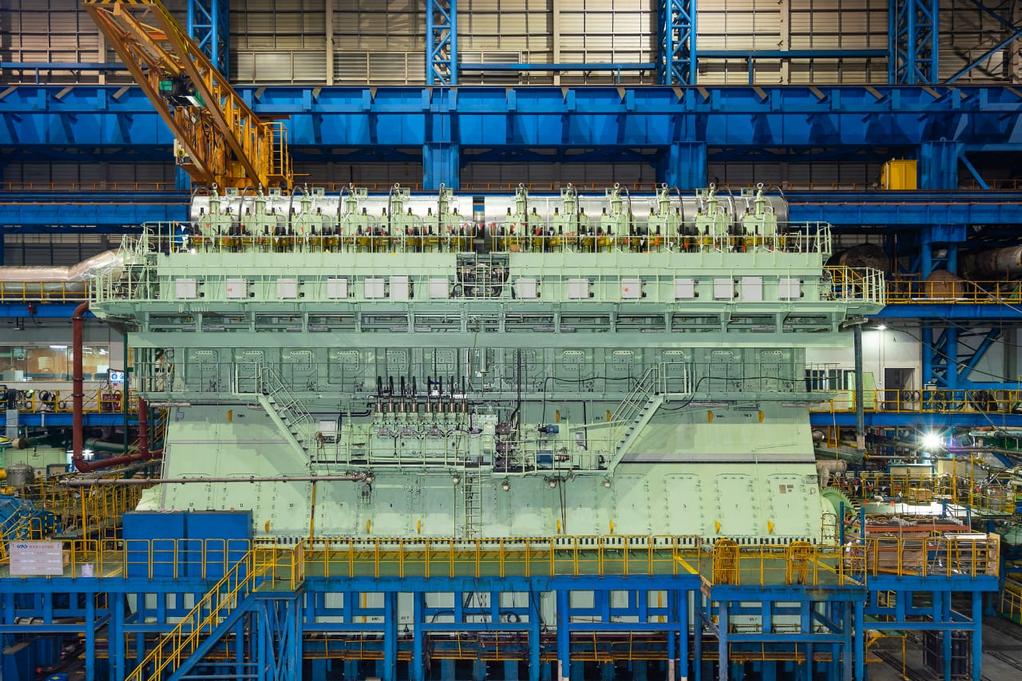Bureau Veritas has granted Swiss marine power company WinGD’s ammonia-fuelled X-DF-A dual-fuel engine an approval in principle (AiP) for the engine’s safety concept
The safety concept describes how risks associated with using ammonia as a fuel are controlled under foreseeable abnormal conditions, possible failure scenarios and their control measures. It is a key element for demonstrating a safe engineroom concept and the capability for safe vessel operation using ammonia as fuel.
The AiP follows confirmed orders for X-DF-A in two bore sizes. The first engine to be developed, the 52-bore X52DF A, will be available for delivery from Q1 2025 and is applicable to a range of vessels including gas and bulk carriers.
Both manufacturer and the class society said the AiP will give shipowners the assurances they need to move ahead with ammonia-fuelled vessel designs.
Bureau Veritas Marine & Offshore, North Asia & China offices senior vice president Alex Gregg-Smith emphasised the crucial need for trust in new technologies within the maritime industry’s ongoing evaluation of diverse transition pathways.
An AiP certificate ceremony was held last week at the Marintec exhibition in Shanghai.
X-DF-A engines will operate on the Diesel principle in both diesel and ammonia modes, maintaining the same rating field as WinGD’s existing X-engines.
Along with the Saverys family-controlled CMB.TECH, WinGD, CSSC Qingdao Beihai Shipbuilding and engine builder CSSC Engine Co will back the first ammonia dual-fuel engines built in China, advancing the construction of the world’s first ammonia-fuelled capesize bulk carriers.
The joint undertaking will power a series of 210,000-dwt bulk carriers to be delivered to Antwerp’s Bocimar division in 2025 and 2026.
Tags: AiP, Ammonia, Safety, WinGD



Recent Posts
Scandlines Nears Delivery of Zero Emissions Ferry Following Successful Sea Trials
India faces emission roadblocks with rising net-zero demands
Green Energy Resources invests in two electric Liebherr LHM 550
NYK Launches Continuous Use of Bio LNG Fuel on Car Carriers to Advance Decarbonization Goals
Yang Ming Expands Fleet with Methanol and LNG Dual-Fuel Vessels Under Fleet Optimization Plan
ClassNK Advocates Speed Gap Monitoring to Optimize Fuel Efficiency in Heavy Weather
Wärtsilä’s retrofit package for the Corsica Linea ferry Pascal Paoli has resulted in fuel savings of up to 22 percent Corsica Linea
COSCO Shipping Names Second Methanol Dual-Fuel Containership in Yangzhou